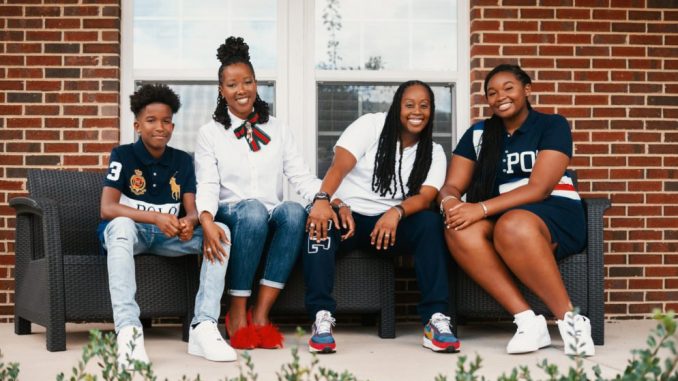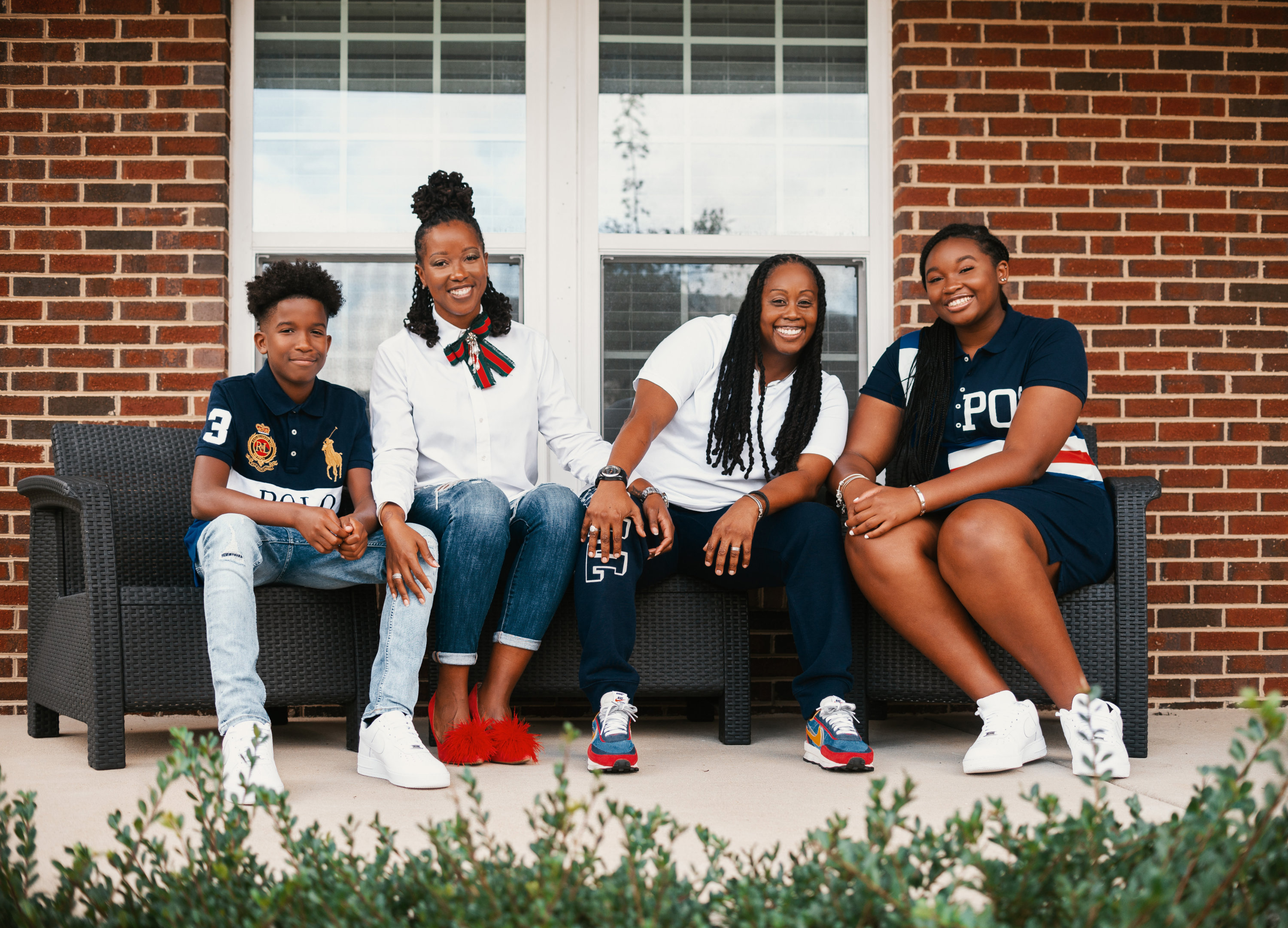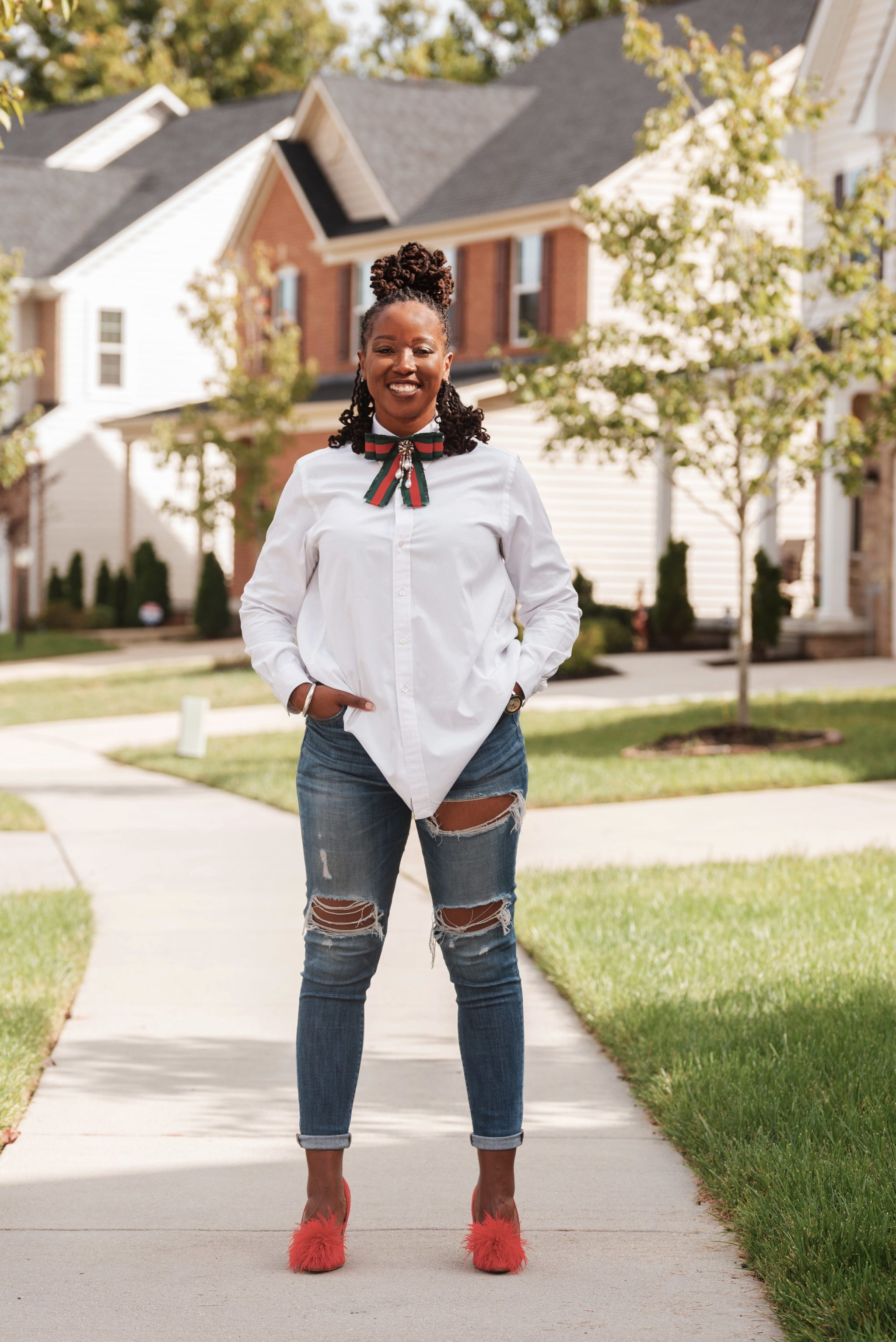
“I have learned to respect my own boundaries around my self-care time, because nobody will respect my boundaries if I don’t.”
Dr. LaNail Plummer is the CEO of Onyx Therapy Group, which specializes in providing mental health services to the Black and LGBTQ communities. The 40-year-old lives in Bowie with her wife and two children, and is also an Army veteran and Howard graduate.
While Plummer has worked in mental health counseling for several years, Onyx officially launched in 2019, and currently has locations in DC, Hyattsville, Pittsburgh, and St. Paul, Minnesota.
Plummer originally became interested in mental health while growing up in a racially diverse, low-income neighborhood in Los Angeles during the ’80s. “At the time, I thought that it was just related to poverty—[why] people were acting out,” she says. “And then I started to realize as I got a little bit older that there might be other issues involved, like mental health.”
When Plummer originally started in counseling, many Black clients would tell her that they wanted to work with a Black therapist but were having trouble finding one. “I knew that people tend to be more comfortable with people who they think naturally relate to them,” says Plummer, as they didn’t want to have to go through the process of explaining microagressions or educating their therapists about their lived experiences. So she decided to create a space where folks could easily find a group of Black therapists: Today, the majority of Onyx’s counselors are Black, and Plummer is careful to ensure that she’s employing therapists from a variety of socioeconomic and cultural backgrounds.
Onyx’s services have proved especially important to its clients over the past year, says Plummer. “So many marginalized folks—Black folks, specifically, and folks in the LGBTQ community—live with this constant kind of shadow that fear and death and harm are near,” she says. “[The pandemic] takes this constant overwhelming fear that’s around us, and it takes it to a whole new level.”
Throughout this difficult period, Plummer has prioritized taking care of herself and her counselors so that they can best help their patients. “As we’re coming out of this, we’re seeing that clients are doing a lot better,” she says. “And they are feeling more empowered, and they are feeling more aware. And they are feeling like they can get back to the work and do the things that they need to do.”

Here’s how Dr. Plummer gets it done:
“During the week, I wake up between 5:15 and 6:15 AM. I head to the gym or personal training for an hour, come home, walk the dog, make breakfast (usually a smoothie or oatmeal—sometimes both) for me and my wife, meditate, and get dressed for work (yes, I dress up even during the pandemic—full outfit: jewelry, perfume, and all). I work for four hours, then take a walk with my wife and dog, have lunch, then work for four more hours. Towards the end of the evening, I rest with my family or hang out with friends. Normally I am in my pajamas (and high-heeled slippers, because I love the luxury of the look) by 7 PM. If I go out, I am in bed by 10 PM, but I prefer to not go out during the week because it affects how I feel the next day. During the evening, I catch up on shows with my wife, play Tetris or Sudoku, or respond to texts from friends and sorority sisters. During the weekend, I relax with my family and friends and usually go to brunch on Sundays.
“Every three weeks I go to the spa, because I believe services like massages, reiki, and facials are important for my mental and physical health, and once a month I attempt to not work and just lay around. I schedule [self-care]. My calendar has dates with myself. It says ‘spa day,’ ‘rest day,’ a line through a date that indicates a ‘do nothing day.’ My accountability partner is my calendar, then my wife and kids, then my closest friends and sorority sisters. Ultimately, I have learned to respect my own boundaries around my self-care time, because nobody will respect my boundaries if I don’t.

“The pandemic affected all areas of our lives. During the pandemic, I decided to sleep in an hour each morning, but required myself to work out by 7 AM. I incorporated midday walks with my wife and dog, increased the number of therapeutic sessions I experienced each month, and went to the doctor when I felt ill. The latter resulted in me getting a hysterectomy in July. Yes, a hysterectomy in the middle of a pandemic. But I anticipated it, planned around it, found a wonderful doctor that validated me, and began my process of physical healing.
“I do not believe in balance for myself. I strive for harmony. As structured as I am, seeking balance feels like work and rigidity. Plus when balance is achieved, stagnation generally follows. Harmony allows for a flow, like water. Some waves require bigger attention and some items of our life need more attention during one period than they do during another. There are times when I need to work over 80 hours a week, and there are times when I only need to work 40 hours. If I use my intuition, meditation, prayer, and insight, I will see what needs to be prioritized when versus allocating the same time for everything and everyone each week.
“I am a person who found purpose in being busy. Who felt validated in saying ‘I have to do _____.’ And it worked for a long time. I have learned the difference between being busy and being productive and filling my time because of avoidance and filling my time because of purpose. Transparently, some of my business has been a reflection of my trauma—working hard to be seen, valued, or to avoid poverty. Sometimes it’s a reflection of feeling scared when I don’t have anything to do or a feeling like I am not needed. My own personal therapy has helped me come to these realizations. To trust that I am where I am supposed to be so I do not need to fear the unknown, but rather to stay present with the gift of today. It has also helped me to identify my trauma triggers and when I need to sit and rest.
“I have learned to ask myself, ‘Why do I want to add this to my schedule? What is the added value for my life? How does it affect others? Is this a trauma response, a valid need, or an imaginary solution to an internal deficit?’ When it comes to my clients, I ask them similar questions. I encourage them to make it part of their self-talk and reflection, and I give them tips to prioritize themselves—plan dates for just themselves, reward themselves for sticking to their boundaries, allow me to be their accountability partner, and recognize the triggers that make them want to work when they need to rest. It also helps that my clients see me frequently—that’s a form of prioritizing their mental and physical health.”


Be the first to comment